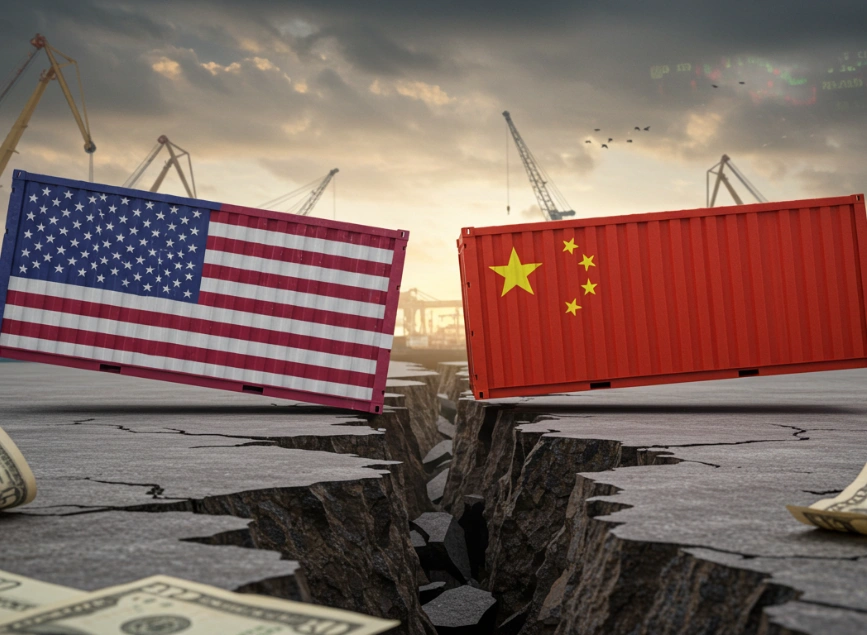
How the US-China Trade War Could Reshape the Global Economy
The ongoing trade war between the United States and China has become one of the defining economic events of the last decade. More than just a clash between two global giants, it’s a shift that’s been felt across supply chains, international markets, and innovation hubs around the world. In this post, we’ll take a closer look at the broader implications of this conflict and what it means for the future of the global economy.
Impact on Supply Chains and International Trade
One of the first major shifts we’ve seen is in global supply chains. With tariffs and trade barriers making things more complicated, companies are starting to rethink where and how they operate. Businesses are reducing reliance on any single country—China in particular—and are searching for new markets and suppliers. This change has pushed many organizations to revamp their trade strategies, which could reduce logistical costs and exposure to sanctions in the long term. Interestingly, this realignment may also boost regional partnerships and help build new, more resilient trade networks.
Read More: The Power of the US Dollar Exerts More Pressure on Bitcoin
Effect on Consumer Prices and Inflation
Tariffs come at a cost—often paid by consumers.
🚀 Some economists believe this pressure will drive innovation, efficiency, and self-reliance in the long term
🛒 Prices for imported goods have risen, pushing short-term inflation
💵 This affects household budgets and purchasing power
🏭 On the flip side, it creates an opening for domestic industries to step up
Shifts in Economic Policies and Emerging Opportunities
The trade war hasn’t just affected business—it’s reshaping government policy too. Countries are responding by adopting more protective measures and investing in their own infrastructure. At the same time, we’re seeing rapid growth in digital technologies and innovation. These developments offer exciting opportunities for job creation and economic productivity. For many nations, this may be the perfect moment to invest in the digital economy and build new competitive strengths.
Read More: Stock Valuation Methods & Key Financial Ratios: A Complete Guide
Global Implications and Economic Volatility
The effects reach beyond the U.S. and China.
📊 If embraced, these shifts may stabilize and strengthen the global financial system over time
💱 Currency fluctuations and market uncertainty have become the norm
📉 Investor confidence has been tested
🔍 But this has also sparked smarter risk management strategies and calls for transparency
Conclusion
The U.S.-China trade war has undoubtedly introduced new challenges to the global economic landscape, but it also offers a chance to rethink and reinvent. From supply chains and pricing to innovation and policy, we’re entering a new era of economic possibility. The key to turning these challenges into opportunities lies in adaptability—how quickly governments and businesses can pivot, evolve, and make the most of a changing world.
Share
Hot topics

Best broker for gold trading
There’s always been a certain magic about gold. Before online charts and trading applications, people stored their wealth in coins and bars, trusting that gold would retain its value during...
Read more




Submit comment
Your email address will not be published. Required fields are marked *